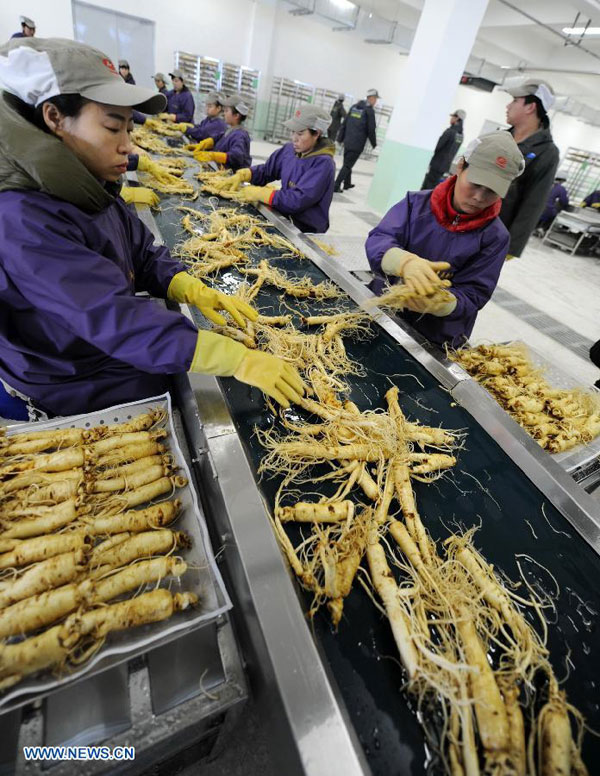Retailers gain excessive profit from fake ginseng
 0 Comment(s)
0 Comment(s) Print
Print E-mail CRI, February 11, 2015
E-mail CRI, February 11, 2015
There have been a growing number of reports of fake ginseng being sold in China in the lead-up to the Spring Festival, as the plant is considered an auspicious gift to give to someone.
With ginseng prices skyrocketing to upward of a thousand yuan per kilogram, a number of ginseng retailers have turned to boiling the roots in sugar to make them more dense.
"How much is sugar? Only several yuan per kilo. And what about ginseng? Two to three hundred yuan for 500 grams. So we add sugar to the ginseng so it's much heavier."
"Where's the water that boils the ginseng? Of course, we drink it. It's so nutritious!"
Wei Feng is a traditional Chinese medicine expert with the National Institute for Food and Drug Control.
He says boiling ginseng in sugar can ruin the medicinal atributes of the root.
"These samples are authentic. Their sugar content is about 20 percent. These ones injected with sugar, their sugar content is as high as 70 percent. In terms of the active ingredient in red ginseng, saponin, makes up around 30 percent of an authentic ginseng root. But after the same root is boiled in sugar water, the proportion of saponin is reduced to less than 20 percent. As such, it can do little to improve people's health."
Korean ginseng is one of the most sought-after varieties of the root, and is very rare in China. As such, Wei Feng warns that a lot of the Korean ginseng being sold in China is faked, with retailers simply rubbing an ointment on regular ginseng.
"There is a strong smell of ointment in this so-called Korean ginseng. What is the ingredient of the ointment? Is it safe? We are not sure at all."
Li Jingsheng with the Beijing Association of Chinese Medicine also warns that Korean ginseng which is grown improperly can actually be bad for you.
"If we fail to process the Korean ginseng in line with the proper standards, the ginseng won't help cure diseases, but will actually harm people's health."
Dubbed the "king of herbs," ginseng is a staple of traditional Chinese medicine.
It has been used to make tonics in TCM for over 3-thousand years.







Go to Forum >>0 Comment(s)